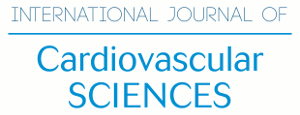Abstract
Background
A recently identified viral illness called coronavirus disease 2019 (COVID-19) is spreading quickly. Numerous cardiovascular issues such as arrhythmias and electrocardiogram (ECG) alterations have been linked to COVID-19.
Objective
In this investigation, we compared ECG indicators of depolarization and repolarization heterogeneity between symptomatic individuals who complained of palpitations and chest discomfort following COVID-19 and those who did not.
Methods
In this prospective case-control study, 56 post-COVID-19 patients who did not have any symptoms of chest discomfort or palpitations were included in the control group and compared with a study group comprising 73 post-COVID-19 patients who presented at the outpatient clinic with complaints of chest pain and palpitation. Electrocardiographic (ECG) measures were used to assess depolarization and repolarization of the ventricles. These measures included the Tpeak-Tend (Tp-e) interval, QT dispersion (QTd), Tp-e/QT ratio, Tp-e/QTc ratio, frontal QRS-T (fQRS-T) angle, and fragmented QRS (FQRS). Two cardiologists recorded the patients’ ECG data. A statistically significant result was defined as a p value less than 0.05.
Results
The results of multivariate analysis including FQRS, Tp-e interval, Tp-e/QT, and Tp-e/cQT showed that presence of FQRS (OR: 6.707, 95% CI: 1.733-25.952; p = 0.006) was an independent predictor of symptomatic post-COVID -19 patients.
Conclusion
In our study, FQRS was found to be significantly higher in symptomatic post-COVID-19 patients than in non-symptomatic post-COVID-19 patients, while Tp-e interval was found to be lower.
COVID-19; cardiac Arrhythmias; Electrocardiography


 ECG: electrocardiogram; Tp-e: Tpeak-Tend; QTd: QT dispersion; fQRS-T: frontal QRS-T; FQRS: fragmented QRS; EF: ejection fraction; QTc: corrected QT.
ECG: electrocardiogram; Tp-e: Tpeak-Tend; QTd: QT dispersion; fQRS-T: frontal QRS-T; FQRS: fragmented QRS; EF: ejection fraction; QTc: corrected QT.